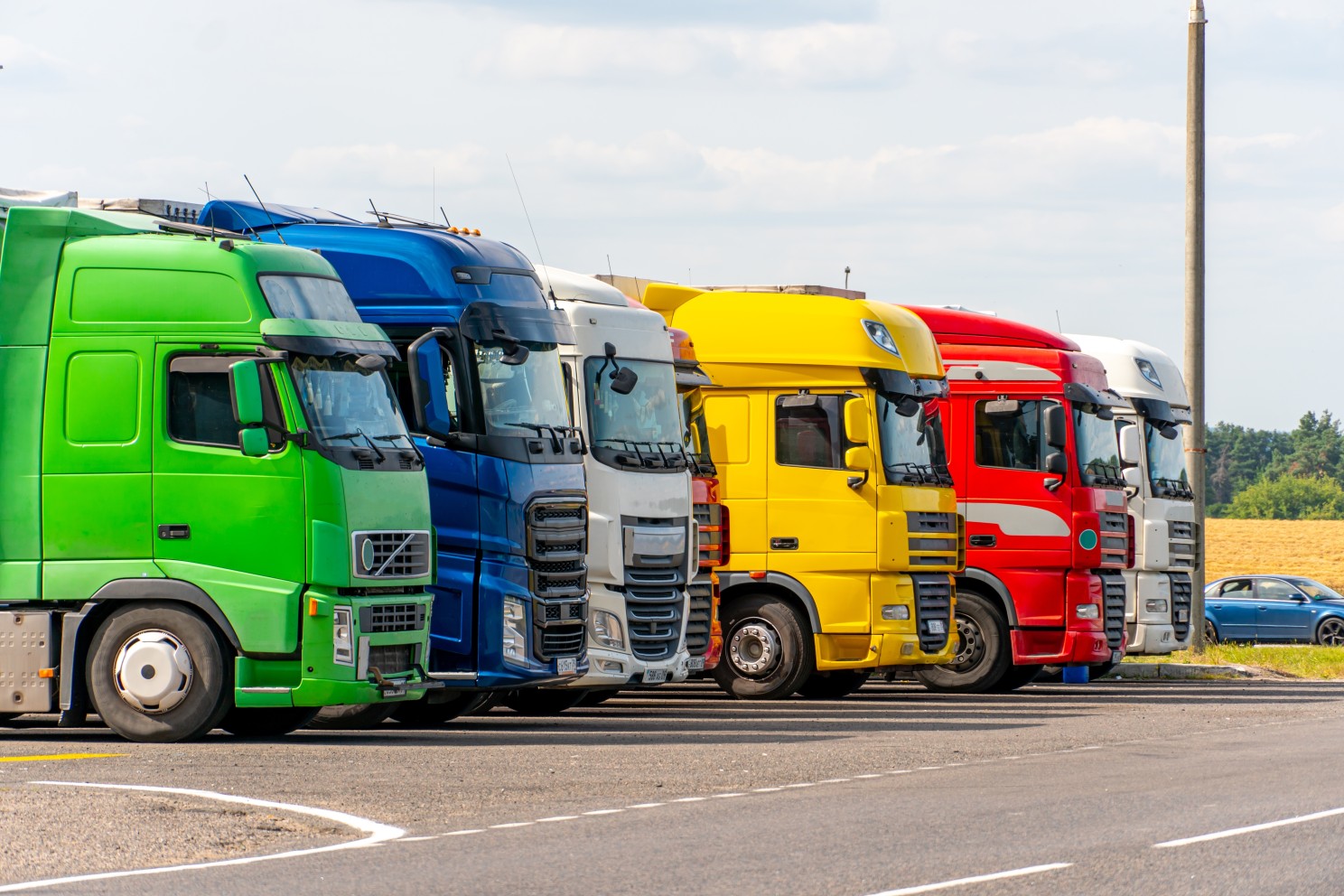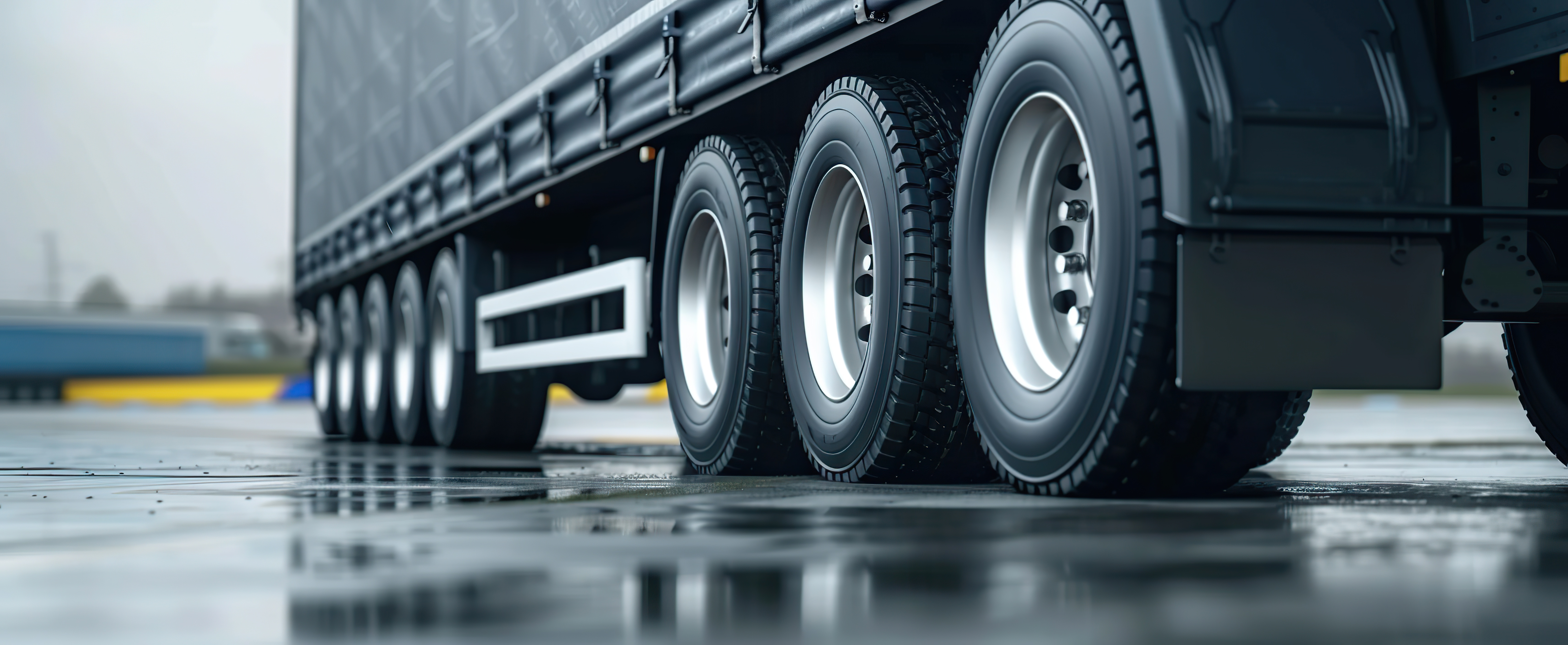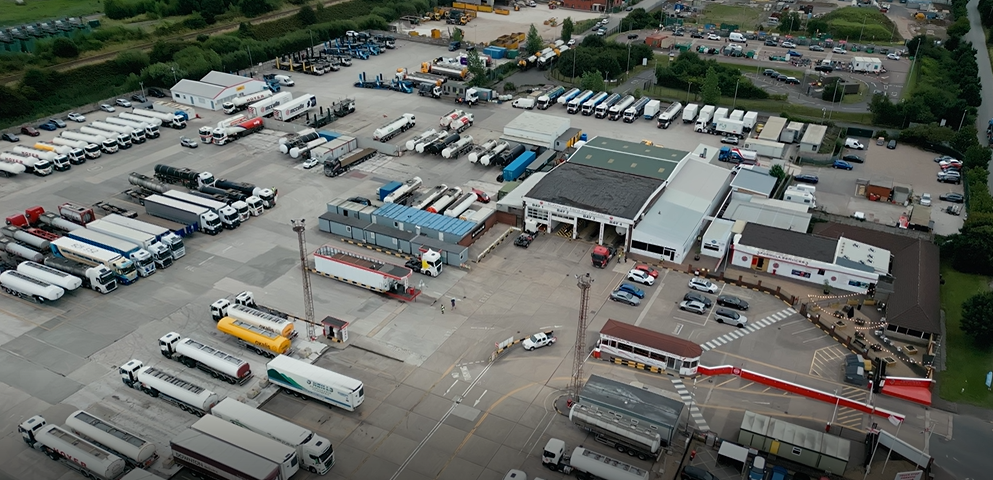
Josh Cousens
Co menedżerowie flot powinni wiedzieć o unijnych przepisach transportowych?
Utworzony: 07.04.2025
•
Aktualizacja: 07.04.2025
Wiemy, że menedżerowie flot zmagają się z niedoborem kierowców, rosnącymi kosztami paliwa i trudnym zadaniem utrzymania zgodności ciężarówek z przepisami. Dodajmy do tego złożoną sieć przepisów transportowych UE, które ewoluują szybciej niż przebieg floty. Czy to brzmi znajomo?
Witamy na europejskiej linii frontu.
Od przepisów dotyczących godzin pracy po cele w zakresie emisji, unijny krajobraz regulacyjny stanowi półtora wyzwania, ale także mapę drogową dla bardziej innowacyjnych, bezpieczniejszych i zrównoważonych przewozów.
Niezależnie od tego, czy prowadzisz rodzinną firmę w Polsce, czy nadzorujesz ogólnoeuropejskie operacje z Wielkiej Brytanii, wyprzedzanie zasad nie jest opcjonalne. To przetrwanie.
Dlaczego menedżerowie flot muszą zwracać uwagę
Unijne przepisy transportowe wpływają na niemal każdy aspekt Twojej działalności: godziny pracy kierowców, emisje spalin, kontrole graniczne, parkowanie i zgodność cyfrową. Nieprzestrzeganie przepisów może oznaczać grzywny, opóźnienia lub utratę kontraktów.
Dobrą wiadomością jest to, że jeśli zrozumiesz system, możesz wykorzystać go na swoją korzyść. Znajomość zasad ułatwia wyróżnienie firmy na tle konkurencji.

Kluczowe przepisy transportowe UE, które każdy menedżer floty powinien znać
1. Godziny pracy kierowców i przepisy dotyczące tachografów
W Unii Europejskiej obowiązują surowe przepisy dotyczące czasu pracy kierowców na drogach. Menedżerowie flot muszą zapewnić swoim kierowcom:
- Jazda nie więcej niż 9 godzin dziennie (z możliwością wydłużenia do 10 godzin dwa razy w tygodniu).
- Nie przekraczać 56 godzin jazdy w tygodniu.
- 45-minutowa przerwa po 4,5 godzinach jazdy.
Tachografy cyfrowe muszą być zamontowane we wszystkich odpowiednich pojazdach w celu śledzenia zgodności. Niezastosowanie się do tego wymogu jest jednym z najczęstszych powodów nakładania kar.
Dowiedz się więcej o [zasadach dotyczących tachografów tutaj] (https://snapacc.com/newsroom/tachograph-rules-made-easy/).
2. Pakiet mobilności
Ten szeroko zakrojony zestaw reform przekształca przewozy transgraniczne. Kluczowe zmiany obejmują:
- Regularny powrót pojazdów do kraju pochodzenia co 8 tygodni.
- Równe wynagrodzenie dla kierowców pracujących w przyjmujących krajach UE
- Nowe zasady dotyczące kabotażu i delegowania kierowców.
To przełomowe rozwiązanie dla menedżerów flot nadzorujących transport międzynarodowy.
Dowiedz się więcej o pakiecie mobilności tutaj](https://transport.ec.europa.eu/transport-modes/road/mobility-package-i_en).
3. Emisje i przepisy środowiskowe
Strefy niskiej emisji (LEZ), docelowe poziomy emisji CO2 dla nowych ciężarówek i zachęty dla pojazdów elektrycznych to dopiero początek.
Menedżerowie flot muszą przestrzegać norm emisji spalin Euro 7. Obejmują one:
- Wiedzieć, gdzie znajdują się strefy niskiej emisji (szczególnie w miastach takich jak Paryż, Berlin i Mediolan).
- inwestować w czystsze technologie lub modernizować starsze pojazdy
- Śledzenie danych dotyczących emisji na potrzeby sprawozdawczości.
4. Inteligentne tachografy i cyfrowa zgodność
Unia Europejska dąży do zautomatyzowanego egzekwowania przepisów:
- Inteligentne tachografy są obowiązkowe we wszystkich nowych pojazdach
- Urządzenia te przesyłają dane GPS i mogą być zdalnie skanowane przez władze.
- Cyfrowe narzędzia do zarządzania flotą nie są już luksusem - są one prawnym zabezpieczeniem.
5. Transgraniczne zasady parkowania i odpoczynku
Kierownicy flot muszą planować miejsca parkingowe i odpoczynku zgodnie z zasadami dobrostanu kierowców:
- Kierowcy muszą spędzać cotygodniowe okresy odpoczynku poza kabiną.
- Bezpieczne parkowanie ciężarówek staje się obowiązkowe w niektórych regionach.

Często zadawane pytania
Jakie są unijne zasady dotyczące czasu pracy kierowców samochodów ciężarowych?
Menedżerowie flot muszą dopilnować, aby kierowcy przestrzegali limitów regulowanych przez UE: 9 godzin dziennie (z elastycznością), odpowiednie przerwy i maksymalne tygodniowe/miesięczne limity jazdy.
Czym jest Pakiet Mobilności UE dla ciężarówek?
Reforma Pakietu Mobilności zapewnia uczciwą konkurencję, dobrobyt kierowców i odpowiedni nadzór w międzynarodowym transporcie rzeczy i transporcie drogowym - z bardziej rygorystycznymi przepisami dotyczącymi kabotażu, wynagrodzeń i zwrotów.
Co się stanie, jeśli złamiesz zasady tachografu?
Kierowcy, którzy łamią przepisy dotyczące tachografów, mogą spodziewać się grzywien, potencjalnych zakazów i pogorszenia reputacji firmy. Nieprzestrzeganie przepisów to nie tylko ryzyko - jest ono kosztowne.
Czy kraje UE wymagają norm emisji dla ciężarówek?
Tak. W większości dużych europejskich krajów i miast obowiązują rygorystyczne polityki i cele w zakresie emisji mające na celu zmniejszenie zanieczyszczenia powietrza przez pojazdy, więc operatorzy flot muszą planować z wyprzedzeniem.
Całościowy obraz
Menedżerowie flot nie tylko zarządzają ciężarówkami, ale także zarządzają ryzykiem, zgodnością z przepisami i reputacją swojej firmy. Zrozumienie przepisów transportowych UE stanowi różnicę między prosperowaniem w nowoczesnym transporcie a pozostawaniem w tyle.
SNAP sprawia, że praca ta jest łatwiejsza do wykonania. Od płatności cyfrowych po rozwiązania w zakresie parkowania ciężarówek i zgodności z przepisami - wspieramy ludzi, którzy utrzymują Europę w ruchu.
Przepisy zaostrzają się, ale kompetentni menedżerowie flot? Oni również zaostrzają swoją grę.
Gotowy, aby zachować zgodność z przepisami, pozostać konkurencyjnym i napędzać przyszłość transportu? Odblokuj SNAP już dziś.



